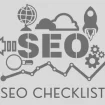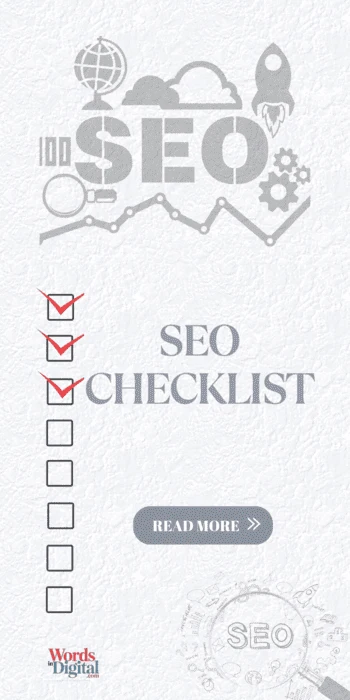1. Introduction to Personal Branding
Millions of blog posts are published every day in the ocean of the internet. So, how will your voice be heard in this sea of content?
Why should readers choose to read your writing rather than someone else’s?
The answer is simple yet powerful: Personal Branding.
When you first start blogging, your focus is usually on “what to write.” However, after a while, you realize how closely success is tied to “who you are.”
A personal brand is your digital fingerprint. It’s what sets you apart from other writers and the unique space you occupy in the reader’s mind.
In this guide, we will take an in-depth look at why a blogger should think like a brand, how to build and strengthen that brand, and the critical steps you must not overlook.
1.1. Why Should You Think Like a Brand?
In the past, the word “brand” evoked images of large companies. Today, it applies to individuals as well.
Being a brand in blogging is a promise you make to your readers.
1.1.1. Differentiation and Memorability
The amount of content produced today far exceeds what even the most content-hungry people can consume.
The only way to stand out from the noise is to be different and memorable.
As you work toward this goal, you can take the first step in developing your strategy by asking yourself, “What is my ‘fingerprint’ that sets me apart from others?” and “What makes my message/offer unique?”
1.1.2. Reader Loyalty and Community
People connect with people, not companies. Your brand builds an emotional bridge between you and your readers.
They start following you not just because of the information you provide, but because of who you are, what you stand for, and how you communicate it. Ultimately, these criteria transform your visitors into a loyal community.
1.1.3. Opportunities
A strong personal brand opens doors beyond blogging. Income models such as speaking engagements, consulting offers, e-book or course sales, and sponsorship agreements become much more feasible when you are a recognized name in a particular field.
2. Your Online Assets: Your Brand’s Strongholds
Your personal brand lives in the digital world. Therefore, it is vital to manage your online assets in a coordinated and strategic manner.
2.1. Blog (Your Headquarters)
Your blog is your brand’s home. Its design, color palette, logo, and most importantly, its content are entirely under your control.
This is where you showcase your expertise in depth and build the most meaningful connection with your readers.
Additionally, your blog makes you authentic and trustworthy: today’s readers value original stories and heartfelt writing over superficial advertising.
2.1.1. What kind of content should you publish on your blog?
2.1.2. How can you generate income from a personal blog? What are some alternative sources of income besides advertising?
2.2. Social Media (Your Interaction Space)
Social media channels are your brand’s ambassadors. They are excellent tools for promoting your blog posts, chatting with your target audience, connecting with other experts in the industry, and showing the “human” side of your brand.
However, you don’t have to be on every platform. Be where your target audience is.
For example:
- Instagram/Pinterest: Ideal for visually focused niches (food, fashion, travel).
- X (Twitter): Powerful for breaking news, industry discussions, and networking with other writers.
- Facebook: Effective for reaching a broader demographic and building community groups.
- LinkedIn (Your Professional Showcase): LinkedIn is indispensable for writers in B2B (business-to-business) or professional service-focused niches. This is your digital resume and professional networking hub. By sharing your blog posts in “article” format, you can attract the attention of professionals in your industry and reinforce your expertise.
2.2.1. Key Strategy
Use a consistent profile photo, bio, and tone of voice across all these platforms.
You want to make sure that when a reader goes from your blog to your LinkedIn profile, they see the same person and the same brand.
3. Define Your Area of Expertise and Gain Recognition
“If you try to be everything to everyone, you will be nothing to anyone.” This saying forms the basis of personal branding.
3.1. Find Your Niche
Recognition begins with specializing in a narrow field.
It is difficult to become an expert in a broad field such as “digital marketing.” However, it is much more realistic to become an authority in a more specific niche, such as “SEO strategies for new e-commerce sites.”
When choosing your niche, look for these three intersections:
- Your passion: A topic you can write about for a long time without getting bored.
- Your expertise: An area you are knowledgeable about or eager to learn about.
- Target audience need: A problem people are seeking a solution for.
3.2. Ways to Gain Recognition
3.2.1. Create Core (Pillar) Content
Write ultra-detailed guides covering everything related to your niche, ranging from 2,000 to 5,000 words. This content will help you rank higher in search engines and establish yourself as a reference source in the industry.
3.2.2. Talk Based on Data
Conduct your small surveys, analyze industry data, and share your findings. Presenting original data is one of the fastest ways to be perceived as an expert.
3.2.3. Be Visible
Don’t just stay on your blog. Contribute to other popular blogs in your industry as a guest writer (guest posting), appear as a guest on podcasts, and speak at relevant online events.
4. Building Trust: The Foundation of Your Brand
When a reader clicks on your content, they give you their most valuable asset: their time and attention.
Building and maintaining this trust is the cornerstone of your brand.
4.1. Consistency
This doesn’t just mean publishing regularly (e.g., every Tuesday). It also means being consistent in your message, values, and quality.
When your readers know what to expect from you, they trust you more.
4.2. Tone of Voice
How does your brand speak? Is it academic and serious? Humorous and sincere? Motivational and inspiring?
Your tone of voice is a reflection of your personality as a writer and should be authentic. Readers want to connect with a real person rather than an artificial voice.
You should maintain this tone everywhere, from your blog to your social media posts and emails.
4.3. Content Quality
This is non-negotiable. Your content should be well-researched, add real value to the reader, and be actionable.
5. Additional Strategies to Take Your Brand Further
The steps above form the foundation of your brand. However, to stand out, you need to add a few extra strategies to your arsenal.
5.1. Networking & Community Building
Personal branding is not a solo show. Build genuine relationships with other writers, influencers, and experts in your industry.
Share their content and leave meaningful comments on their posts.
Remember, your network is your net worth.
These relationships are invaluable for future collaborations and guest blogging opportunities.
5.2. Storytelling
People are interested in facts, but they fall in love with stories.
When sharing your expertise, turn your personal experiences, failures, and lessons learned into stories.
This approach helps readers empathize with you and makes your brand more human and memorable.
5.3. Email List: Direct Line of Communication with Your Audience
Social media platforms come and go, and algorithms change. But your email list is yours.
By asking your readers for their email addresses, you establish a direct communication channel with them.
This strategy is the most effective way to build a loyal community around your brand and market your products or services in the future.
***
Frequently Asked Questions
What is personal branding?
Your personal brand is your digital fingerprint; it’s what sets you apart from other writers and the unique place you occupy in your readers’ minds.
In blogging, it’s a promise you make to your readers, and your success is closely tied to “who you are.” It allows you to build loyal communities by establishing an emotional bridge with your readers.
How do you build a personal brand?
Start by strategically managing your online presence (blog, social media) to build your personal brand.
Gain recognition by defining your niche and becoming an expert.
Build trust through consistency, an authentic voice, and high-quality content. Strengthen your brand by networking, storytelling, and building an email list.
How do my blog and social media accounts support my personal brand?
Your blog is considered the “headquarters” of your personal brand.
This platform is where you establish the foundation of your content and identity.
Social media channels, on the other hand, function as your brand’s “ambassadors.”
Through social media, you can reach wider audiences with your personality, interests, and areas of expertise.
These platforms are excellent tools for initiating conversations about your content, interacting directly with your readers, and forming a bond with them.
Summary: Building a personal brand in blogging is a process that requires time, consistency, and strategic effort.
Every piece of quality content you create, every genuine interaction, and every consistent message you share are like the bricks that make up your brand.
Your success in becoming a brand that readers trust, follow, and think of first when it comes to a specific topic will depend on how seriously you take this goal.
You can share this article on social media or get a summary with ChatGPT / Perplexity:



 Share
Share X
X ChatGPT
ChatGPT Perplexity
Perplexity









